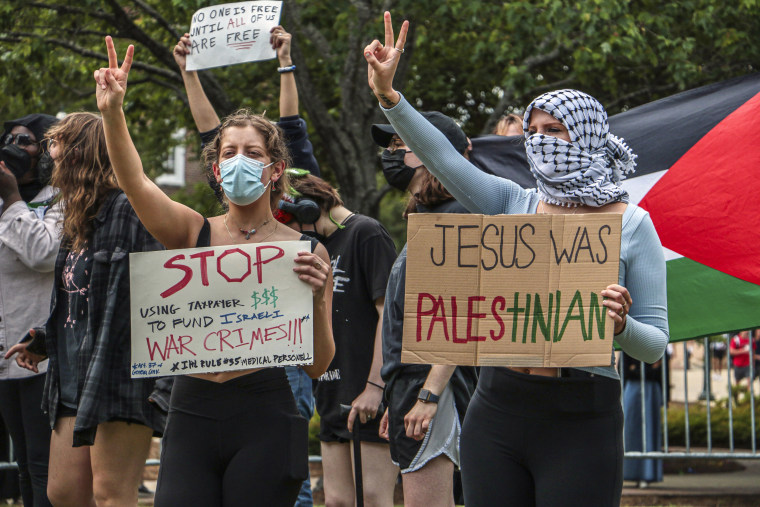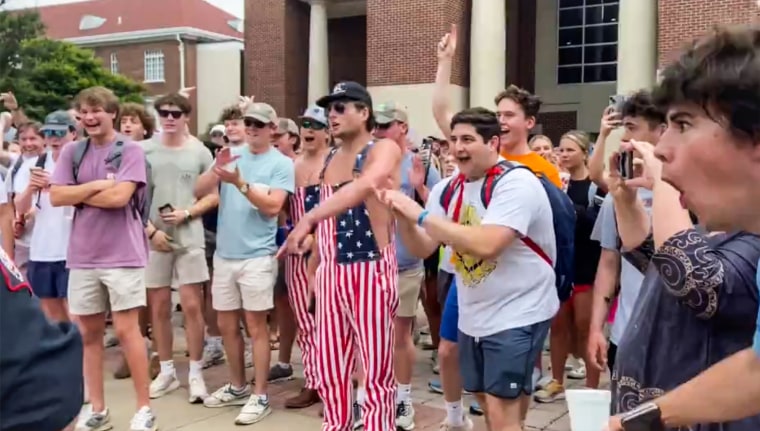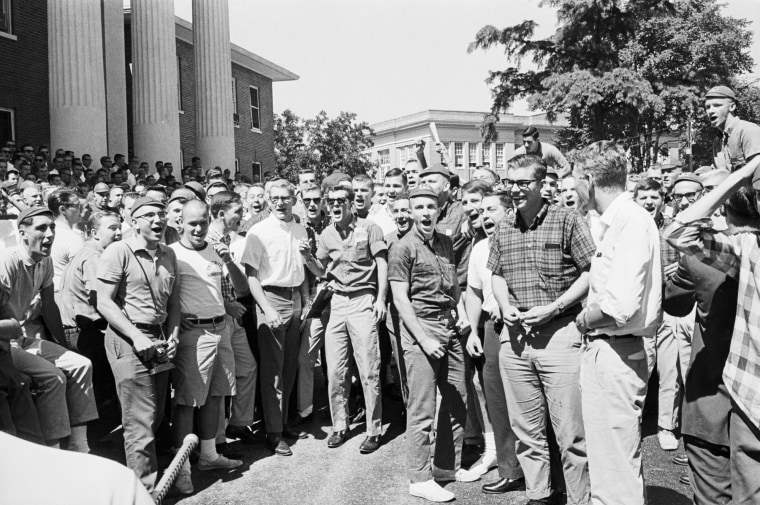The University of Mississippi has opened at least one student conduct investigation after videos of pro-Palestinian protesters surrounded by counterprotesters circulated online, including one that many have singled out as racist.
Chancellor Glenn F. Boyce sent a letter to students and staff on Friday noting that Ole Miss leaders were aware of behaviors that were “offensive, hurtful, and unacceptable, including actions that conveyed hostility and racist overtones” at Thursday’s protest.
“While student privacy laws prohibit us from commenting on any specific student, we have opened one student conduct investigation,” Boyce wrote. “We are working to determine whether more cases are warranted.”

On Thursday, a group of roughly 30 to 60 pro-Palestinian protesters gathered on the quad and added to the list of demonstrations on college campuses nationwide. But the event turned hostile as they were outnumbered by counterprotesters, who at one point drowned out the chants of protesters by singing “The Star-Spangled Banner.”
Videos of the event circulated online, with many noting that the pro-Palestinian demonstrators appeared to be a multiracial group but were surrounded by a mostly white group of counterprotesters taunting them.
One confrontation drew particular offense, in which a Black female graduate student on the protest side of a barricade went up to two young men to record the group as they yelled in her direction.
In the corner of one widely shared video, a man can be seen jumping up and down and appearing to make a noise to imitate an ape at the woman.

Other members of the group yelled “Lizzo” and “Lock her up” at the woman, who was guided away by police.
The university’s Black Student Union released a statement in solidarity with the pro-Palestinian group, whom they described as “nonviolent demonstrators who were advocating for Palestine,” according to The Daily Mississippian.
“The students were exercising their right under the First Amendment, while the counter-protesters were present with malicious intent as well as a prominent lack of knowledge on the situation at hand,” the statement posted to Instagram said.
Commenters online condemned the incident, comparing the racist overtones of the interaction to the long history of racial animus and violence in Mississippi.
More than 100 years ago, the state’s senators voted to send all of its Black people to Africa. When the university was ordered by a federal court to admit Black students in 1962, 2,000 white people rioted against the arrival of new student James Meredith.

And even though it’s in a state with one of the highest proportions of Black residents, only 11.4% of Ole Miss’ student body is Black.
Boyce’s message on Friday acknowledged both students’ and faculty’s rights to free speech and peaceful assembly under the First Amendment, but singled out behaviors that demeaned people “because of their race or ethnicity” as contrary to the school’s values. He added that it is “important to acknowledge our challenging history, and incidents like this can set us back.”
“It is one reason why we do not take this lightly and cannot let the unacceptable behavior of a few speak for our institution or define us,” Boyce said. “We are a community of scholars committed to creating an academic experience that respects the dignity of each individual.”






